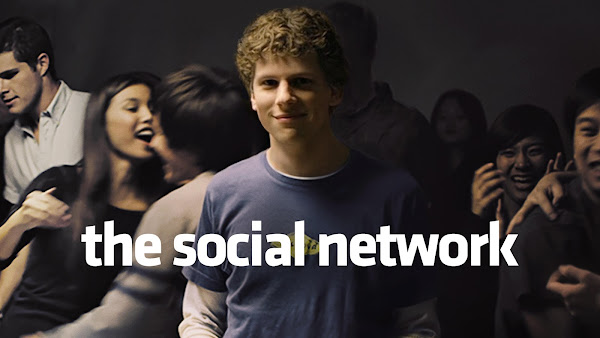David Fincher’s The Social Network (2010) is a razor-sharp exploration of ambition, power, and betrayal in the digital age. Chronicling the creation of Facebook and the subsequent legal battles, the film is as much a character study as it is a commentary on the personal and societal costs of innovation. With Aaron Sorkin’s blistering screenplay, Fincher’s meticulous direction, and a career-defining performance from Jesse Eisenberg, The Social Network has cemented itself as one of the defining films of the 21st century.
The story begins in 2003 at Harvard University, where Mark Zuckerberg (Jesse Eisenberg), a brilliant but socially awkward computer programmer, launches what would eventually become Facebook. His creation sets off a series of conflicts that pit him against his former best friend and co-founder Eduardo Saverin (Andrew Garfield), the Winklevoss twins (Armie Hammer), and Napster co-founder Sean Parker (Justin Timberlake). The film unfolds across two timelines: the rise of Facebook and the deposition hearings for the lawsuits that followed, creating a narrative structure that is both dynamic and revelatory.
Jesse Eisenberg’s portrayal of Mark Zuckerberg is a masterclass in nuance and complexity. Eisenberg captures the character’s intellect, arrogance, and insecurity with precision, making Zuckerberg both compelling and infuriating. His rapid-fire delivery of Sorkin’s dialogue underscores Zuckerberg’s cutting wit and emotional detachment, while subtle moments of vulnerability hint at the personal costs of his ambition.
Andrew Garfield’s Eduardo Saverin provides the film’s emotional anchor. Garfield’s performance is deeply empathetic, portraying Eduardo as a loyal friend and earnest businessman who becomes disillusioned by Zuckerberg’s betrayals. His confrontation with Zuckerberg, culminating in the searing line, “You better lawyer up, asshole,” is one of the film’s most powerful moments. Armie Hammer’s dual performance as the Winklevoss twins is both hilarious and impressive, while Justin Timberlake’s charismatic yet manipulative Sean Parker adds another layer of complexity to the narrative.
Aaron Sorkin’s screenplay is a tour de force, blending legal drama, personal conflict, and biting humour with exceptional precision. The dialogue crackles with energy, each exchange revealing layers of character and motivation. Sorkin’s ability to balance technical jargon with universal themes ensures that the film resonates with both tech-savvy audiences and those less familiar with Silicon Valley’s inner workings.
David Fincher’s direction is impeccable, his signature style of precision and control perfectly suited to the story’s themes of power and obsession. Fincher’s use of muted tones and low lighting creates an atmosphere of tension and intrigue, while his meticulous attention to detail ensures that every frame contributes to the narrative. The editing by Kirk Baxter and Angus Wall, which won an Academy Award, is a masterclass in pacing, seamlessly weaving together the dual timelines to build momentum and suspense.
Trent Reznor and Atticus Ross’s Oscar-winning score is integral to the film’s impact. The combination of electronic and orchestral elements creates a soundscape that is both haunting and propulsive, mirroring Zuckerberg’s relentless drive and the cold, mechanical nature of his creation. Tracks like “Hand Covers Bruise” perfectly capture the film’s tone, blending melancholy with a sense of inevitability.
Thematically, The Social Network is a meditation on ambition, legacy, and the sacrifices made in pursuit of success. Zuckerberg’s journey reflects the broader cultural shift brought about by the digital revolution, raising questions about the ethics of innovation and the human costs of technological advancement. The film’s exploration of friendship, loyalty, and betrayal underscores the personal stakes of its characters, making their conflicts deeply relatable even as they play out on a grand stage.
Revisiting The Social Network in 2025, its relevance is as striking as ever. The film’s portrayal of the intersection between technology and human relationships feels even more prescient in an era increasingly defined by digital connectivity and its discontents. Its influence on both biographical storytelling and the depiction of the tech industry in cinema is profound, inspiring a wave of films that grapple with similar themes.
The Social Network is not just a story about Facebook; it is a story about power, ambition, and the fragile nature of human connection. With its extraordinary performances, incisive writing, and masterful direction, it stands as one of the greatest films of its time, a work that challenges, provokes, and endures.


























No comments:
Post a Comment